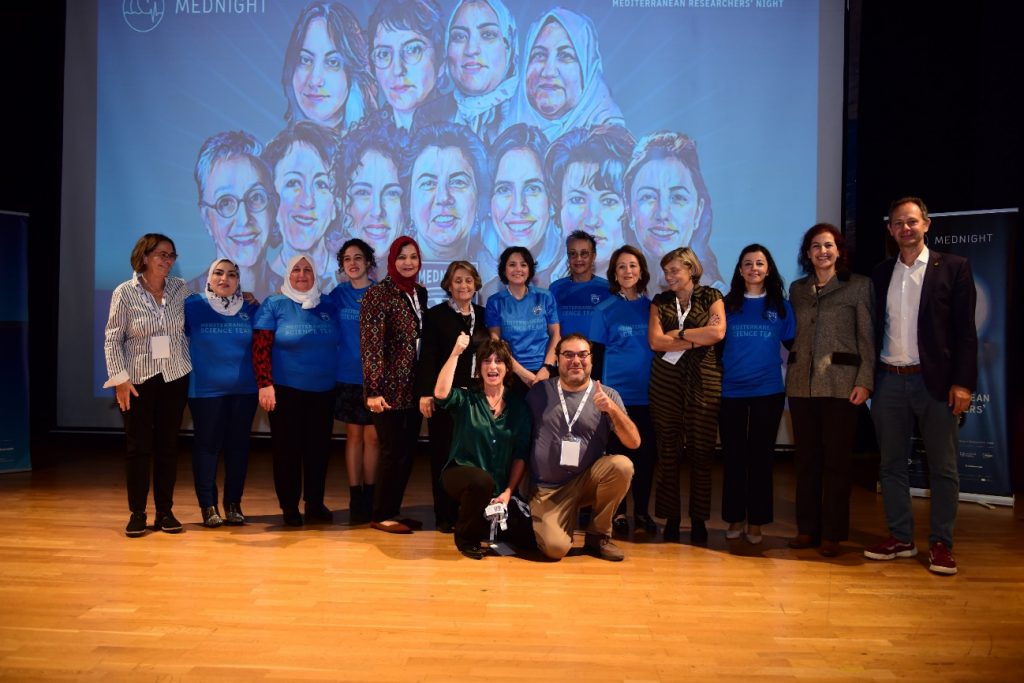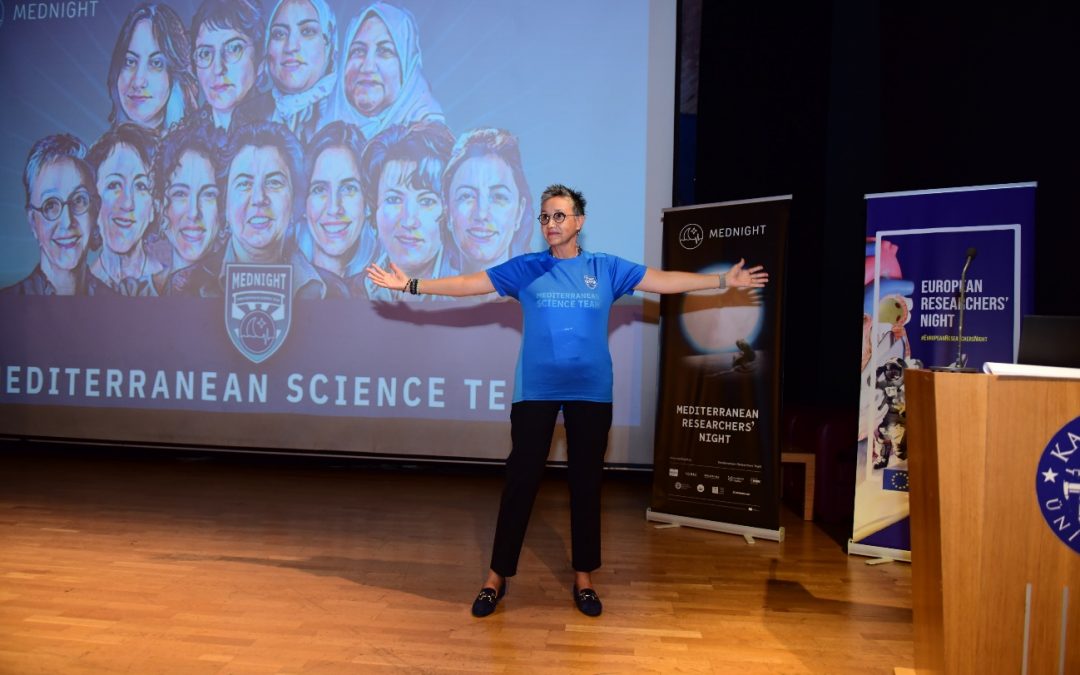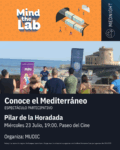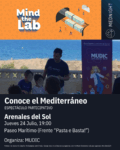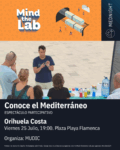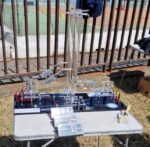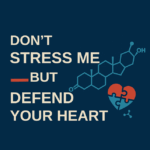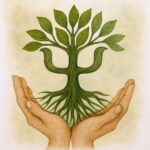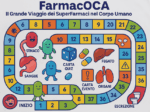Lebanese researcher Najat A. Saliba receiving the Mediterranean Science Team T-shirt.
The Mediterranean Science Team 2023 Gala opened with the delicate sound of a small stringed instrument, a kemence, whose origin is attributed in equal parts to Greeks and Turks.
11 nationalities, 11 cultures, are represented in the Mediterranean Science Team 2023, and it was time to celebrate.
The grand Mednight Gala, the Mediterranean Researchers’ Night, brought together in its second edition seven of the winners, all of them top scientists, to symbolise the unity of science, come what may, in the search for solutions to the common problems of the Mediterranean peoples.
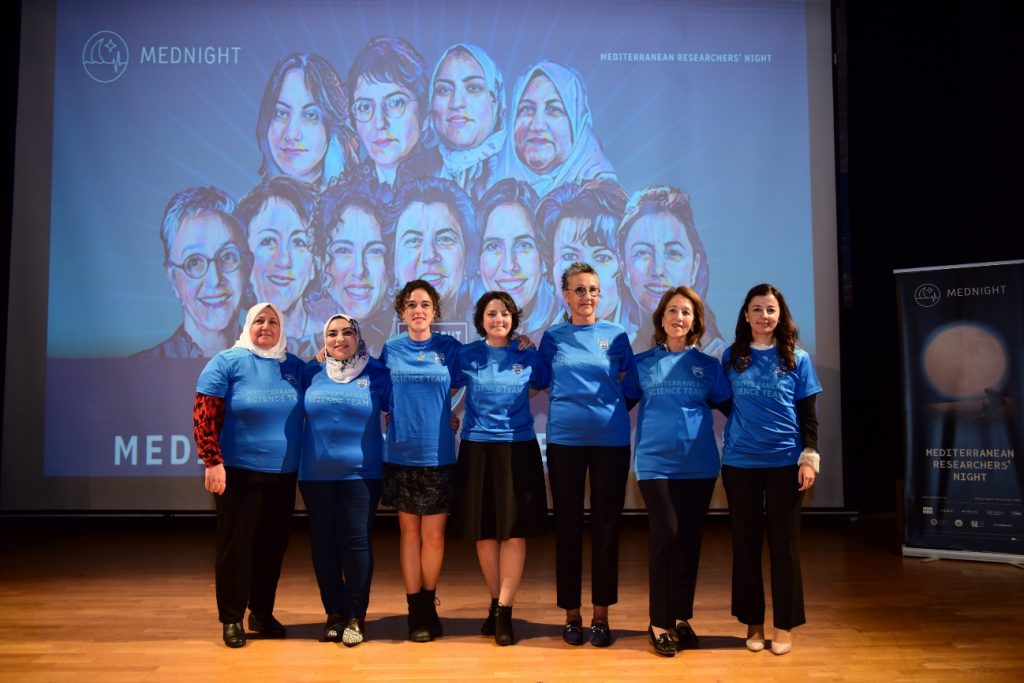
The conference hall at Kadir Has University, which hosted the event, was filled with the delicate sound of the kemence and its six hundred year old melodies. The gala was held as part of the 8th conference of the Association of Women Rectors (EWORA), and the kemence was still echoing when Gulsum Saglamer, president of EWORA and of the jury of the Mednight Mediterranean Science Team, former rector of Istanbul Polytechnic University, began her welcome speech by recalling that this event had to be postponed in February, when a devastating earthquake plunged Turkey into a mourning that can still be felt today.
Saglamer thanked the members of the jury for their participation and announced that in this second edition of the Mediterranean Science Team all the winners are women:
“It was a magnificent result based on the success of the candidates. I am sure that these fellow candidates will be excellent role models for young women in all Mediterranean countries.
Gulsum Saglamer also highlighted the value of the research taking place in Mediterranean countries:
“I believe that Mediterranean universities have great potential to lead pioneering scientific and technological research projects, especially on issues such as climate change and the environment. I hope that in the coming years ahead we will be able to save our beautiful Mediterranean, to be proud of ourselves”.
Following Gulsum Saglamer’s speech, Theo Anagnostopoulos, coordinator of Mednight, recalled the fundamental objective of Researchers’ Night and the dissemination of science in society:
“Science has always been important, but we need public understanding of science and engagement to be important. We have seen it in the pandemic, we also need it in the face of climate change, or to deal with catastrophes like the biggest forest fire we have experienced in Europe. We have worked on many science outreach events, to bring science to society. But the most outstanding is today’s event, where we present 11 scientists, all of them women, who will be the seed for other girls and women and will open the door to greater international collaboration between Mediterranean countries.
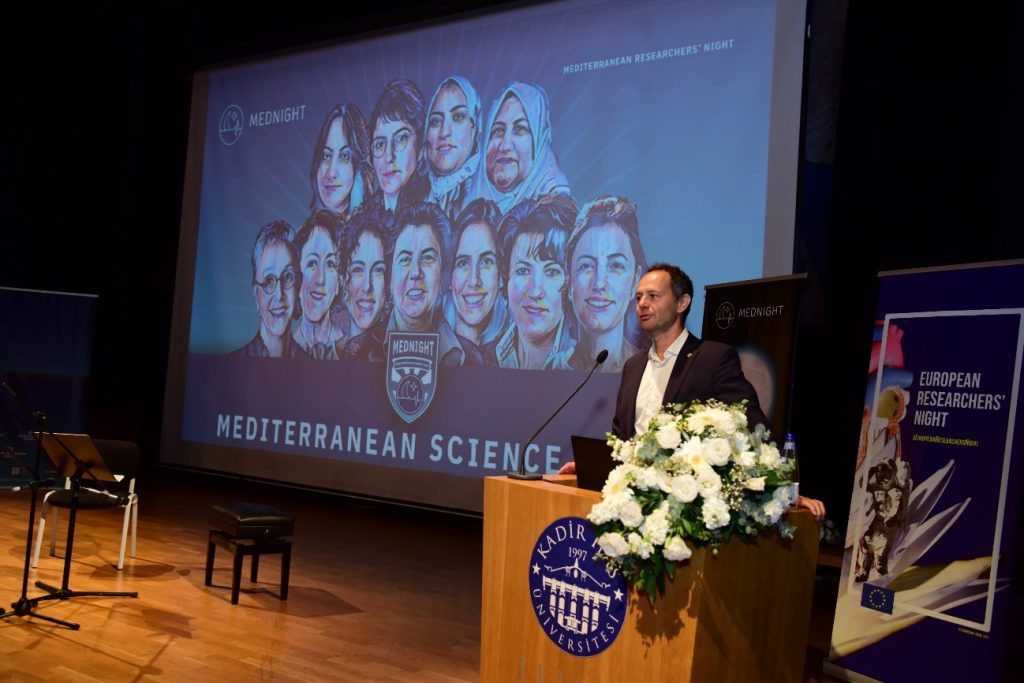
After the Mednight coordinator’s speech, the gala’s host, Rukiye Devrés, called the president of the Turkish Academy of Sciences, Canan Atilgan, to the stage.
Professor Atilgan encouraged women to be part of decision-making bodies:
“Today we already know that science needs women and minorities, because the more diversity in research, the more diversity, ideas and experiences, the better the world will do.
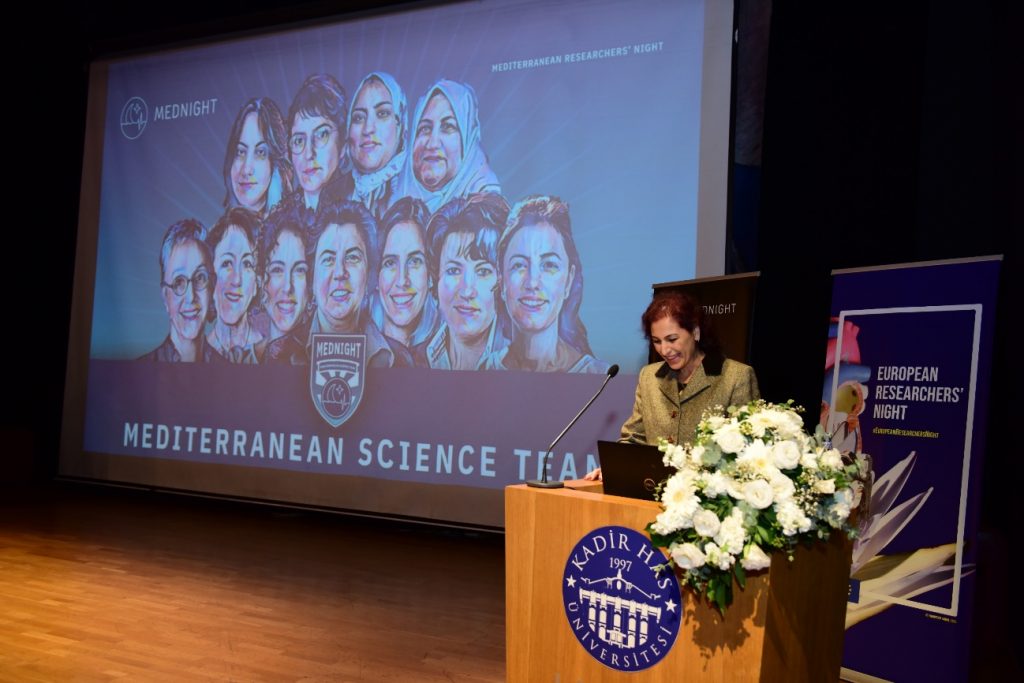
And then began the ceremony of the presentation of the Mediterranean Science Team T-shirts to the award winners attending the event.
The T-shirts are a symbol, because the aim is for the Mediterranean Science Team to have as much impact on society as the football teams.
Those attending the gala had the opportunity to listen to the scientists explain their research. One by one, they explained the purpose of their work, their achievements and the way forward. All speeches are available on Mednight’s Youtube channel
Cristina Romera, an oceanographer at the Institute of Marine Sciences of the CSIC in Barcelona (Spain), knows the anthropogenic pressure that the Mediterranean is experiencing, and her research is aimed at finding the formula, the system that will free us from the invasion of plastic that we are experiencing.
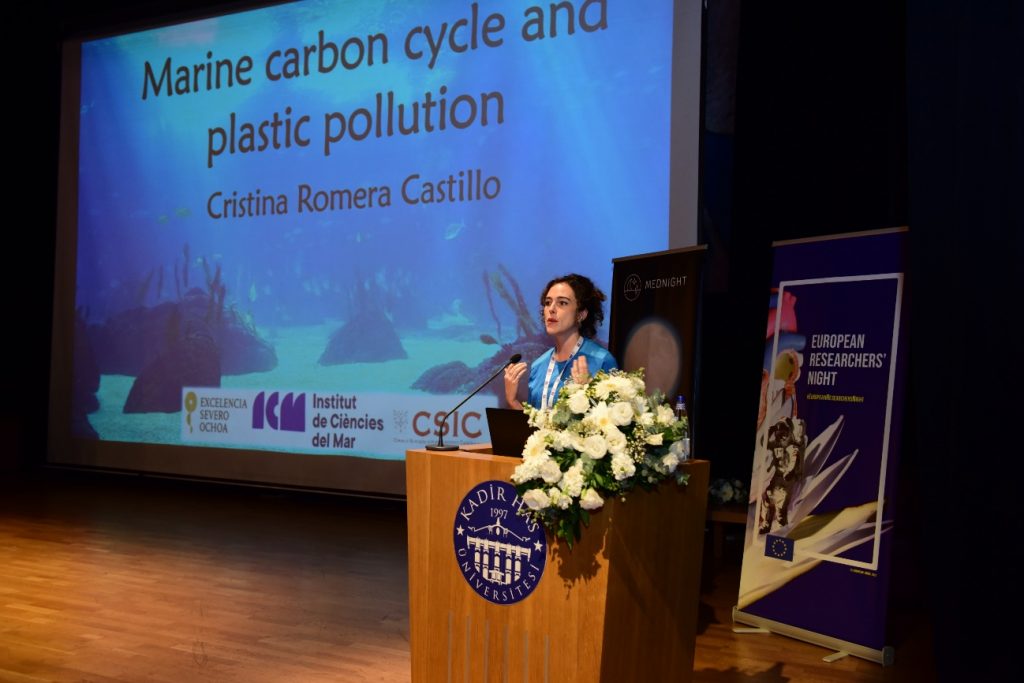
Turkish researcher Seda Keskin Avci is studying nano materials that are emerging as solutions to combat the climate crisis.
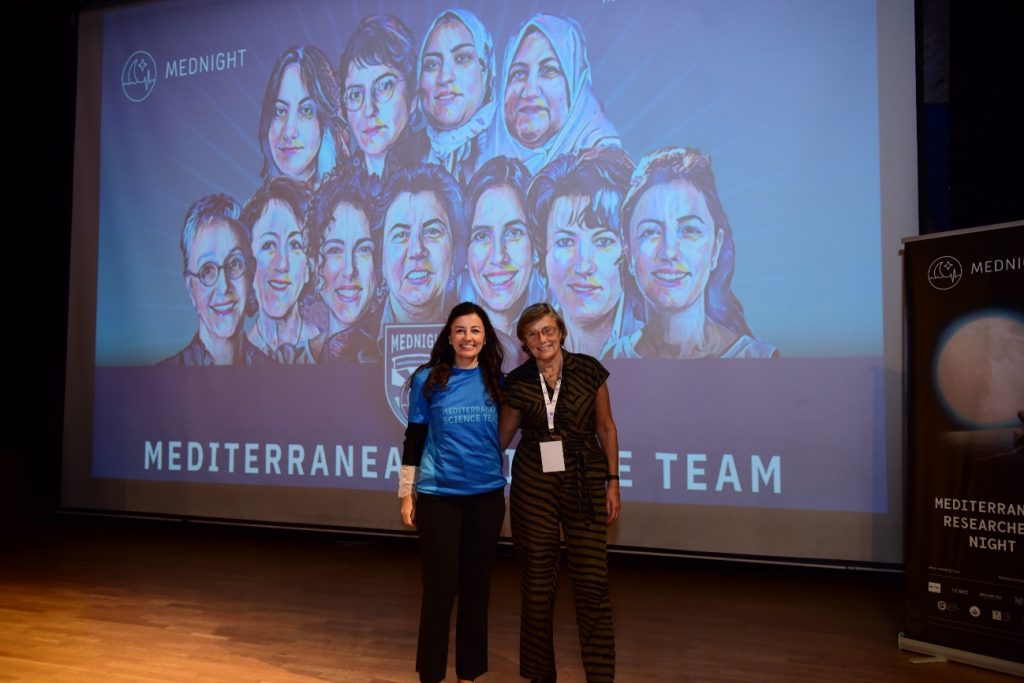
“I feel like I’m among Amazons”.
Turkish researcher Serim Ilday began her presentation at the Mediterranean Science Team Gala by referring to her colleagues:
“I feel like I’m among Amazons”.
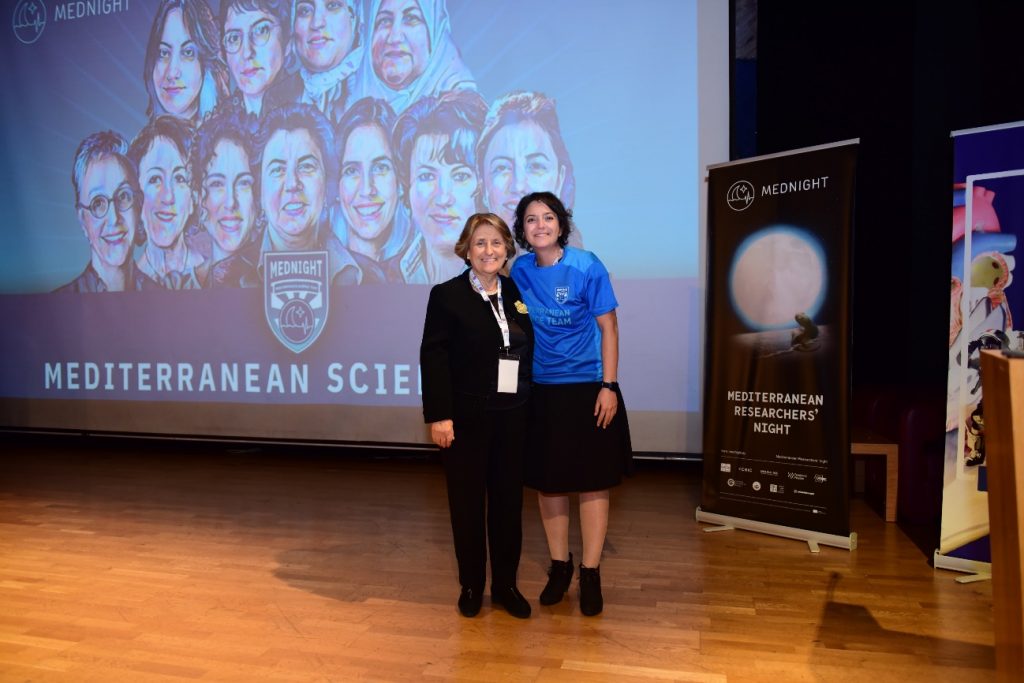
Rajaa Cherkaoui El Moursli is a Moroccan scientist specialising in nuclear physics. Her work was key in the discovery of the Higgs Boson, and, as she explained in her speech, one of her greatest achievements was to ensure that Morocco is now part of the CERM.
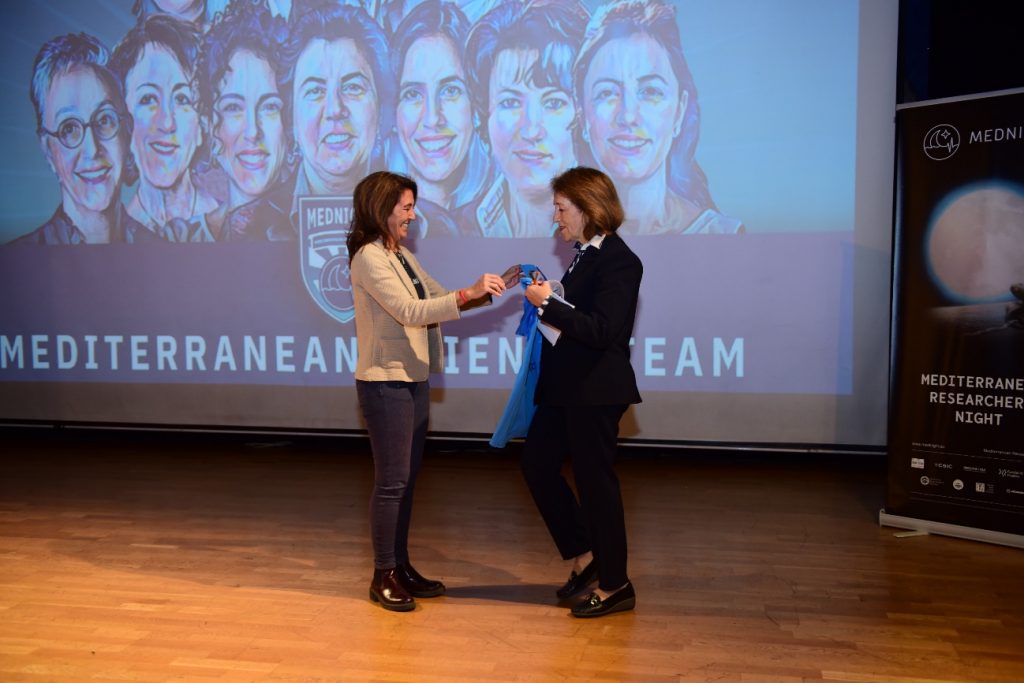
Safaa Kumari is an eminent Syrian virologist, working on super seed development at the International Center for Agricultural Research in the Dry Areas (ICARDA). She is world renowned for the development of virus resistant super seeds.
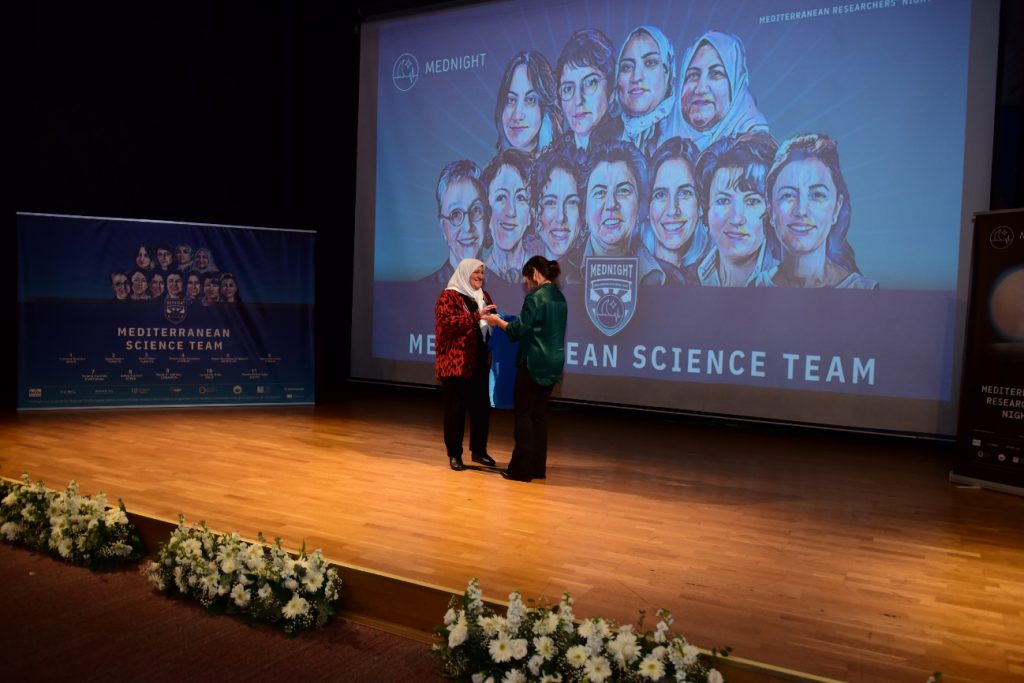
“Every voice matters”.
During the Mednight Mediterranean Science Team Gala – Mediterranean Researchers’ Night , Lebanese scientist Najat A. Saliba, Member of Parliament in the Lebanese government, could not overlook the Israeli-Palestinian conflict.
Najat A. Saliba addressed the university community in particular:
“In a world where every human life matters, it is imperative that we walk the talk: the voice of every student is vital and our primary mission in these challenging times must continue to be to provide a platform for safety, reflection, dialogue, exchange of information and ideas.
Egyptian researcher Sarah Abdelkader is a PhD student in environmental health at the Institute for Global Health and Human Ecology at the American University in Cairo. An environmental engineer and PhD candidate in global health and human ecology, she specialises in water and wastewater treatment, climate change and green buildings.
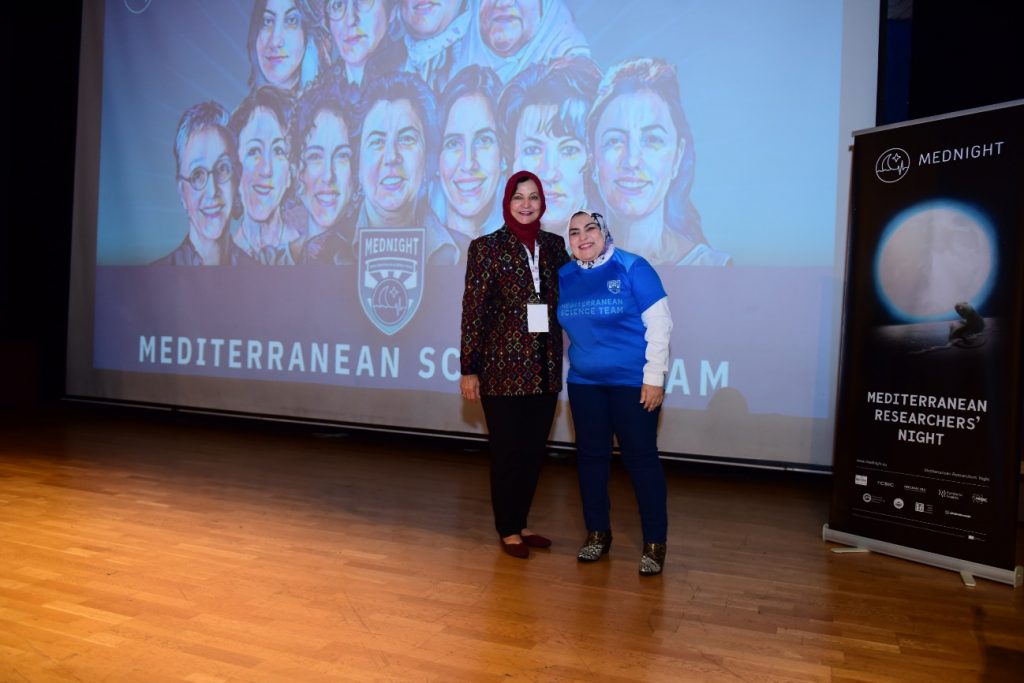
There was a final moment of team building.
And let the game continue!
